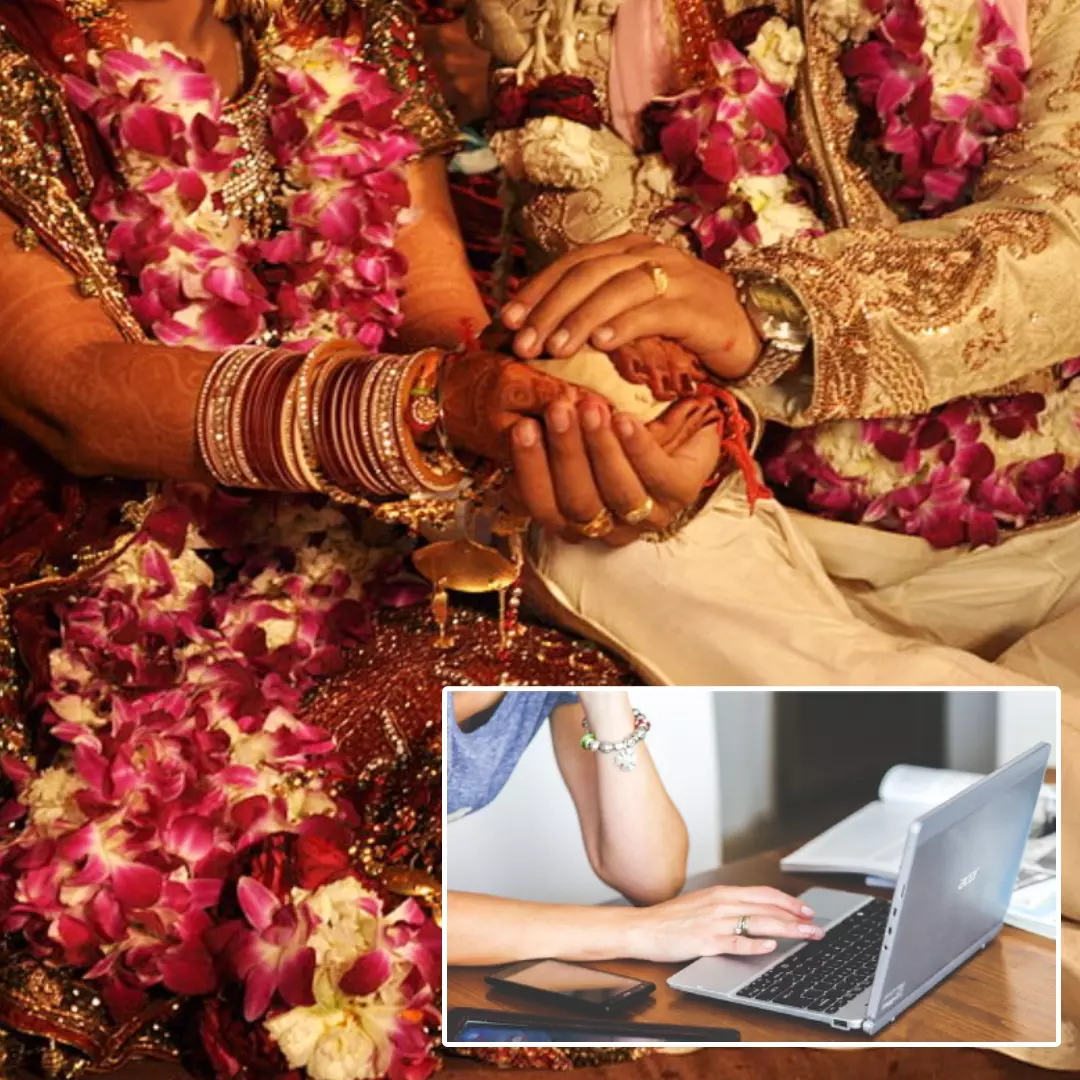A Noteworthy Ruling: Bride In India To Marry Groom In US Virtually, Courtesy Madras High Court
Writer: Vakilsearch
Vakilsearch.com is the pioneer online platform that provides legal services to startups, corporates and professionals in India.
India, 28 Jan 2023 10:35 AM GMT | Updated 7 March 2023 12:02 PM GMT
Creatives : Ankita Singh
A literature lover who likes delving deeper into a wide range of societal issues and expresses her opinions about the same. Keeps looking for best-read recommendations while enjoying her coffee and tea.
In a noteworthy ruling, the Madurai Bench of the Madras High Court instructed officials to make it possible for a bride who is in India to wed a groom who is a citizen of the United States with Indian ancestry in front of three witnesses via virtual mode, while noting that the law must keep up with the advancement of technology.
In a noteworthy ruling, the Madurai Bench of the Madras High Court instructed officials to make it possible for a bride who is in India to wed a groom who is a citizen of the United States with Indian ancestry in front of three witnesses via virtual mode, while noting that the law must keep up with the advancement of technology.
While hearing the petition of P.N. Vasmi Sudarshini of Kanyakumari district, who fell in love with L. Rahul Madhu, a citizen of the USA, the Court noted that Section 12 of the Special Marriage Act of 1954 allows parties to choose any manner of marriage solemnization as long as it is recognized, reasonable, and does not violate public policy.
The plea was moved in the Madras High Court after the sub-registrar ignored the couple's application under the Special Marriage Act, 1954.
The pair filed the application on May 5, 2018, and a notice was published a week later. Despite waiting the required 30-day time for the marriage to be solemnised, the couple was surprised to learn that their application had not been processed further when they visited the registration office. And Rahul, a US citizen, had to return due to Visa restrictions leading to the present plea.
The current predicament would not have occurred if the respondent had made efforts at the time the marriage was to be solemnised at the registration office, according to HC Justice GR Swaminathan.
The court, while citing past instances where marriages were recognised in the absence of either party, opined that - "Just as an act of the court should not harm any party, the default committed by the authority ought not to result in prejudicial consequences"
Referring to other countries, the court stated that Singapore adopted the COVID-19 (Temporary Measures for Solemnisation and Registration of Marriages) Act, 2020, which allows for the solemnisation and registration of marriages using distant communication systems. Here couples who meet the requirements could marry online, and statutory declarations could also be issued virtually.
Moreover, according to the Hanafi school of thought in Pakistan, marriage might be done through Skype, according to the judge.
Justice Swaminathan also noted that - “Section 12 (2) of the Special Marriage Act states that the marriage may be solemnised in any form the parties may choose to adopt. In this case, the parties have chosen the online mode. Since the law has to keep pace with the march of technology, the choice of the parties (to solemnise their marriage through virtual mode) herein very much passes legal muster” and thereby directed the sub-registrar to facilitate the solemnisation of the marriage of the pair virtually in the presence of three witnesses.
Following the marriage, the petitioner was allowed to sign the marriage certificate book for herself and Rahul Madhu. The judge even stated that the authorities should issue the marriage certificate in accordance with Section 13 of the Act.
Read More: IGST Levied On Ocean Freight Not To Be Reviewed By GST Department
 All section
All section















